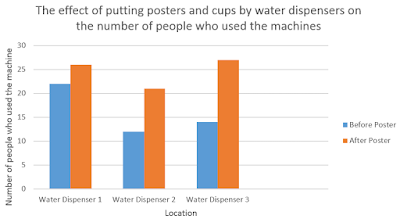Modern homo sapiens evolved around 200,000 years ago and lived mainly as hunter-gatherers. They mostly led nomadic lives moving from place to place in search of food. Their bodies had evolved to make them efficient hunter-gatherers and this continued for thousands of years.
Changes in the…
see more at www.psychmechanics.com



 Preeya ChibbraSandev PanaserBecky SeversReferences: Chaiken, S., & Eagly, A. H. (1983). Communication modality as a determinant of persuasion: The role of communicator salience. Journal of personality and social psychology, 45(2),241. Edmonds, C. J., & Jeffes, B. (2009). Does having a drink help you think? 6–7-Year-old children show improvements in cognitive performance from baseline to test after having a drink of water. Appetite, 53(3), 469-472. Fishbein, M., Triandis, H. C., Kanfer, F. H., Becker, M., & Middlestadt, S. E. (2001). Factors influencing behavior and behavior change. Petty, R. E., & Cacioppo, J. T. (1986). The elaboration likelihood model of persuasion (pp. 1-24). Springer New York.
Preeya ChibbraSandev PanaserBecky SeversReferences: Chaiken, S., & Eagly, A. H. (1983). Communication modality as a determinant of persuasion: The role of communicator salience. Journal of personality and social psychology, 45(2),241. Edmonds, C. J., & Jeffes, B. (2009). Does having a drink help you think? 6–7-Year-old children show improvements in cognitive performance from baseline to test after having a drink of water. Appetite, 53(3), 469-472. Fishbein, M., Triandis, H. C., Kanfer, F. H., Becker, M., & Middlestadt, S. E. (2001). Factors influencing behavior and behavior change. Petty, R. E., & Cacioppo, J. T. (1986). The elaboration likelihood model of persuasion (pp. 1-24). Springer New York. Targeted social media campaign using the hashtag #GiveLife
Targeted social media campaign using the hashtag #GiveLife The infographicMatthew ConnellJake DunkleyJoshua Mann
The infographicMatthew ConnellJake DunkleyJoshua Mann